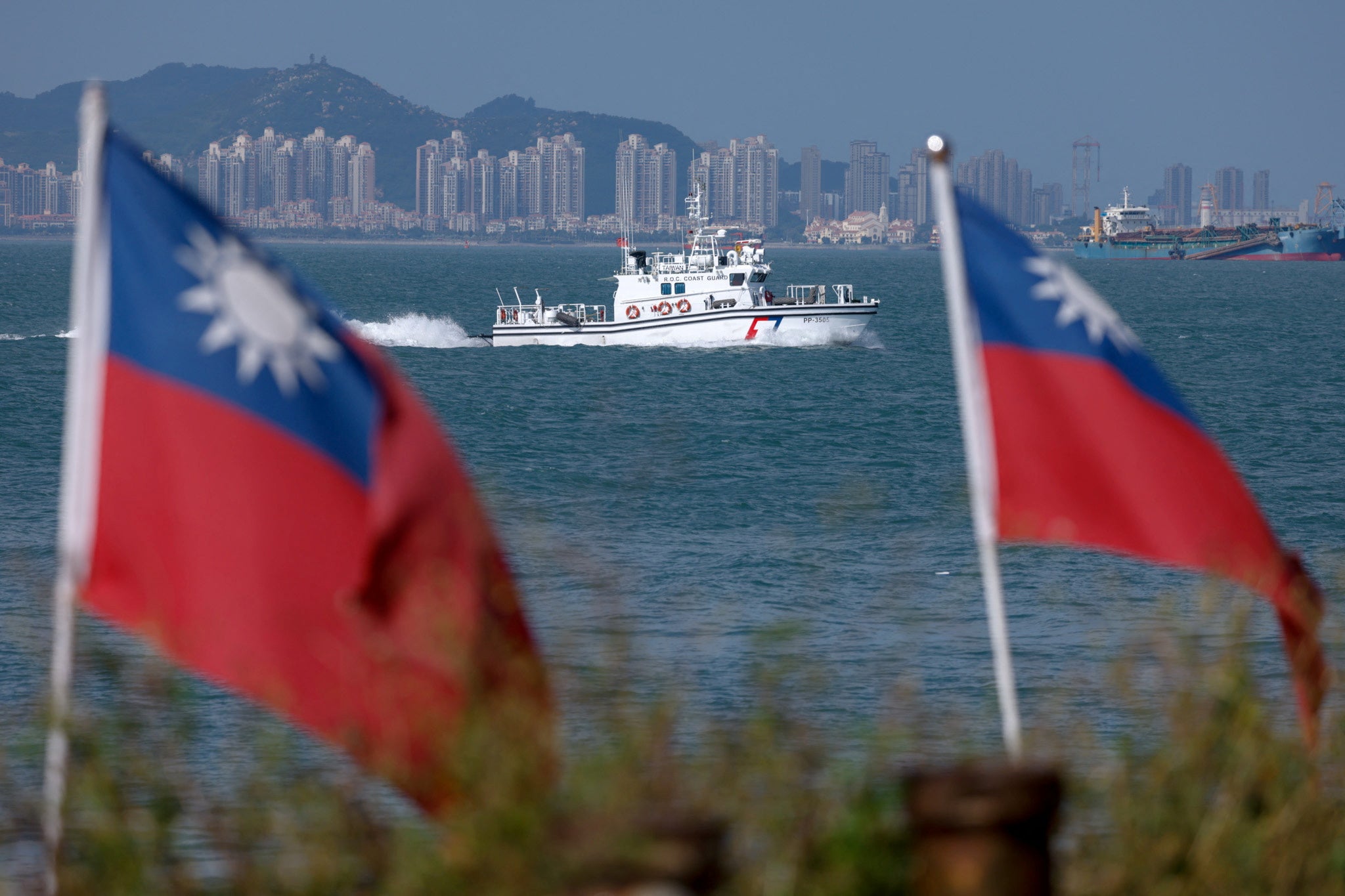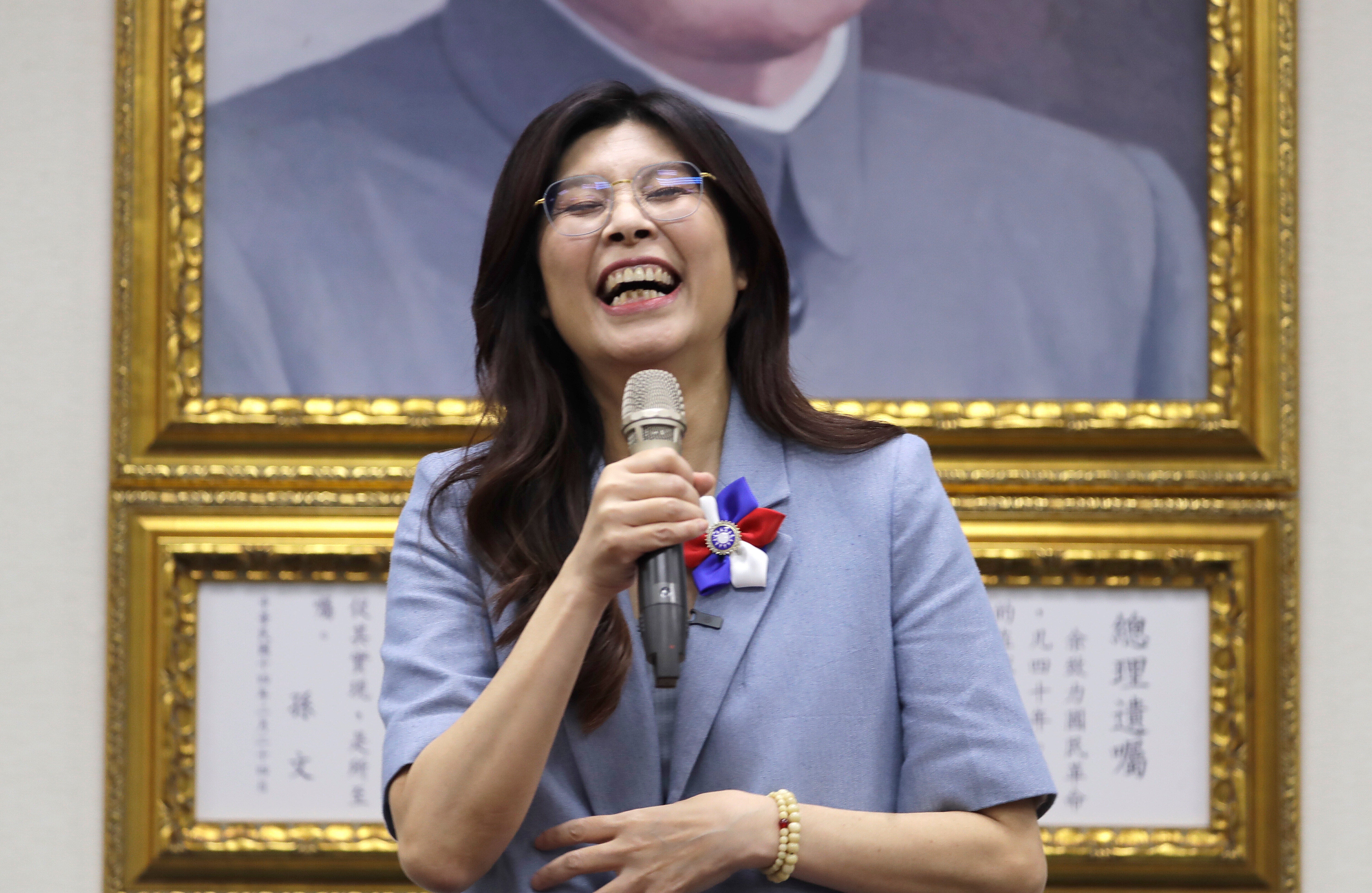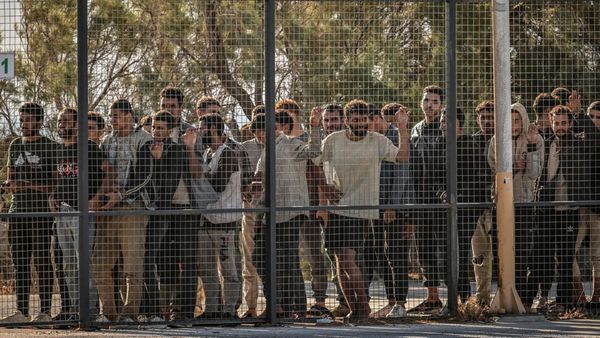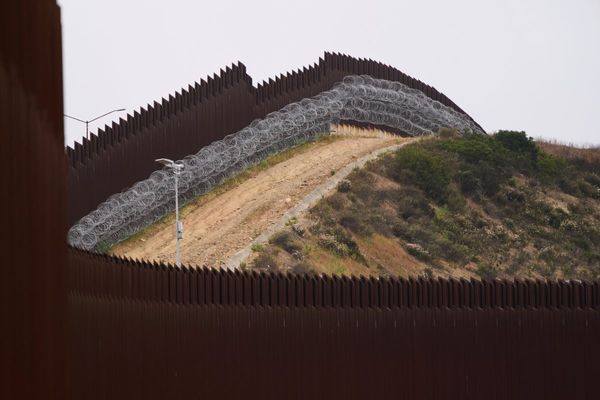Taiwan’s main opposition party has elected a Beijing-leaning firebrand leader who promises to “unite” not just the Kuomintang (KMT), but also “all of Taiwan” amid the threat of a full-scale invasion by China.
Cheng Li-wun, who will lead Taiwan’s main opposition political party KMT from 1 November after being elected last week, has taken a conciliatory tone regarding China, pledging to keep peace with the giant neighbour.
China sees the democratically governed island of Taiwan as its own territory.
"The ending of elections is the beginning of unity,” Ms Cheng said in her victory speech. "We will not just unite KMT, but also all of Taiwan,” she said.
Chinese president Xi Jinping’s message to his new ally across the Taiwan Strait was different in tone from what Beijing usually reserves for Taiwan’s democratic president Lai Ching-te who it brands as a separatist.
Mr Xi said the Communist Party in mainland China and the KMT in Taiwan share a “common political foundation” of opposing Taiwan’s independence and support for the “1992 consensus”. The "1992 consensus" refers to an agreement reached that year that both sides are part of "one China", a cherished principle in Beijing.
The two parties should “unite the vast majority of people in Taiwan to deepen exchanges and cooperation, boost common development, and advance national reunification”, Mr Xi said. Taiwan's government strongly objects to China's sovereignty claims.
While the KMT lost the presidential election last year, the party and its ally, the small Taiwan People's Party, together hold the most seats in parliament, creating a headache for the ruling Democratic Progressive Party trying to get the budget and its legislation passed. The KMT traditionally espouses close relations with China, and speaking at party headquarters in Taipei, Ms Cheng said the KMT under her leadership would be a "creator of regional peace".

US intelligence and military leaders testified that the Chinese president has instructed the People’s Liberation Army (PLA) to be ready to “invade or coerce” Taiwan by 2027, the centenary of the army’s founding. China considers its smaller neighbour Taiwan its own sovereign territory, calling it a breakaway province, and doesn’t rule out reunifying the self-governing island with the mainland by force.
Ms Cheng, 55, will take office at a time when Taiwan is aggressively amping up its military muscle and defence spending to fight back a possible Chinese invasion. While campaigning, she said she wanted "all Taiwanese people to be able to proudly and confidently say, “I am Chinese”.
Ms Cheng’s election to the prominent role falls in line with Beijing’s wishes as she has opposed increased defence spending and vowed to ensure peace.
"The KMT will make our home the strongest shelter for everyone against life's storms. Because we will safeguard peace across the Taiwan Strait," she said.
She also wrote back to the Chinese president and said Taiwan and China, countries on both sides of the Taiwan Strait, were “members of the Chinese nation”, using an expression in Chinese that refers to ethnicity rather than nationality.
She did not mention anything about the reunification of Taiwan with China.

Ms Cheng started out in politics in her now rival party, the Democratic Progressive Party (DPP), and last week defeated establishment member and former Taipei mayor Hau Lung-bin with slightly more than 50 per cent of the vote.
During her high-voltage campaign, Ms Cheng refused to back Taiwan’s increased defence budget, steering away from the current administration’s most-pressing goal. Taiwan’s defence spending is directly proportional to the threats it is facing from China’s military and is also backed strongly by the US, which is helping out the island nation with Abram tanks.
In the opposition seat for now, Ms Cheng has made it clear that she intends to fight president Lai for his seat as well.
“We will stay united, and we are determined to win the elections in 2026 and 2028,” she said, referring to Taiwan’s next local and leadership polls.
Hope for tariff breakthrough as White House confirms Trump to meet Xi Jinping
Chinese Communist Party ousts 11 key officials in biggest purge since 2017
North Korea fires short-range ballistic missiles toward east, Seoul says
Thousands arrested by Myanmar military after raids on infamous cybercrime spots







